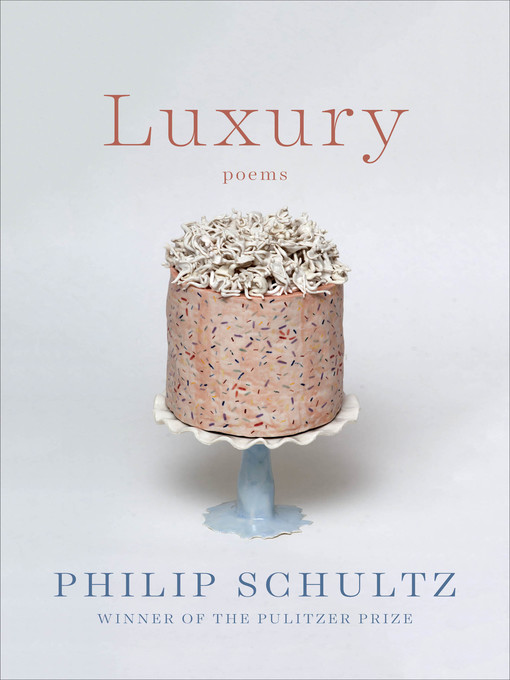
Luxury
Poems
کتاب های مرتبط
- اطلاعات
- نقد و بررسی
- دیدگاه کاربران
نقد و بررسی

November 1, 2017
In his eighth collection of poetry (not counting a novel in verse), Pulitzer Prize winner Schultz (Failure) turns his probing eye to examine aging, family, and the power of memory. "Speaking of suffering, / the houses--our sober, recalcitrant houses--are swollen/ with dreams that have grown opaque with age." The poet masters combining philosophy with humor, in "Aardvarks," describing a jitney ride, Schultz writes, "He's the reason I'm sitting back here/ next to the toilet, thinking about Pythagoras." Occasionally, the line breaks are forced or erratic. One- or two-word lines are often interspersed with longer phrases and occasionally a preposition is left standing alone. In several poems, the language becomes too abstract, for example, in "A Moment," "A schism/ in which conviction and mediocrity/ conspire/ to eliminate each other. A channel through which guilt flows/ unashamed." With subjects ranging from Westerns to porcelain cakes to a visit to the Social Security office, Schultz's poems overall impart wisdom and deep humanity. Often, his wry humor provides an insouciant take on modern life. VERDICT Not a perfect collection, but one that will provide revelations with each rereading.--Doris Lynch, Monroe Cty. P.L., Bloomington, IN
Copyright 2017 Library Journal, LLC Used with permission.

December 18, 2017
Schultz, the Pulitzer Prize–winning author of Failure, adopts a philosophical approach to aging, suicide, and the passing of time in his eighth collection. He remarks on the present as something “I seem to have less to do with lately,/ standing as I do off somewhere nearby,/ confused as to what just occurred, and why.” Schultz also notes that “the future remains translucent/ and unambiguous/ in its desire to elude me.” The work is largely concerned with the past, refracting through a singular lens the many forms suicide can take: “I was going to college in six months/ when Dad had a stroke/ and his doctor said: ‘If he doesn’t stop working/ he’ll be dead soon.’ ” Luxury assumes the guise of a 1955 Pontiac station wagon, which may have been one reason Dad “got up earlier each morning,/ worked harder,/ longer each day.” Luxury is also the fact of aging into one’s 70s, “of living perpetually/ on the edge/ of grace/ and death.” References to such thinkers as Aristotle, Augustine, and Nietszche prepare readers for a close engagement with Camus. In the four-part title poem, the speaker and several others seek “the same unsolvable answer/ Camus sought/to the absurd paradox/of suicide.” Throughout this emotional search, Schultz gives complex questions the thorough, honest, and lyrical treatment they deserve.

























دیدگاه کاربران